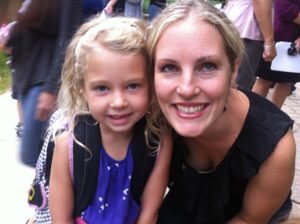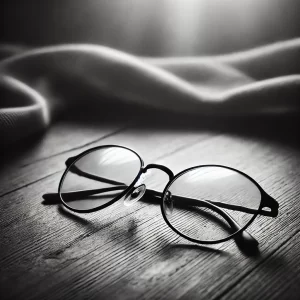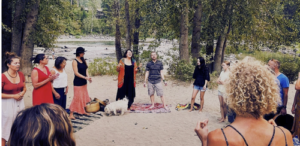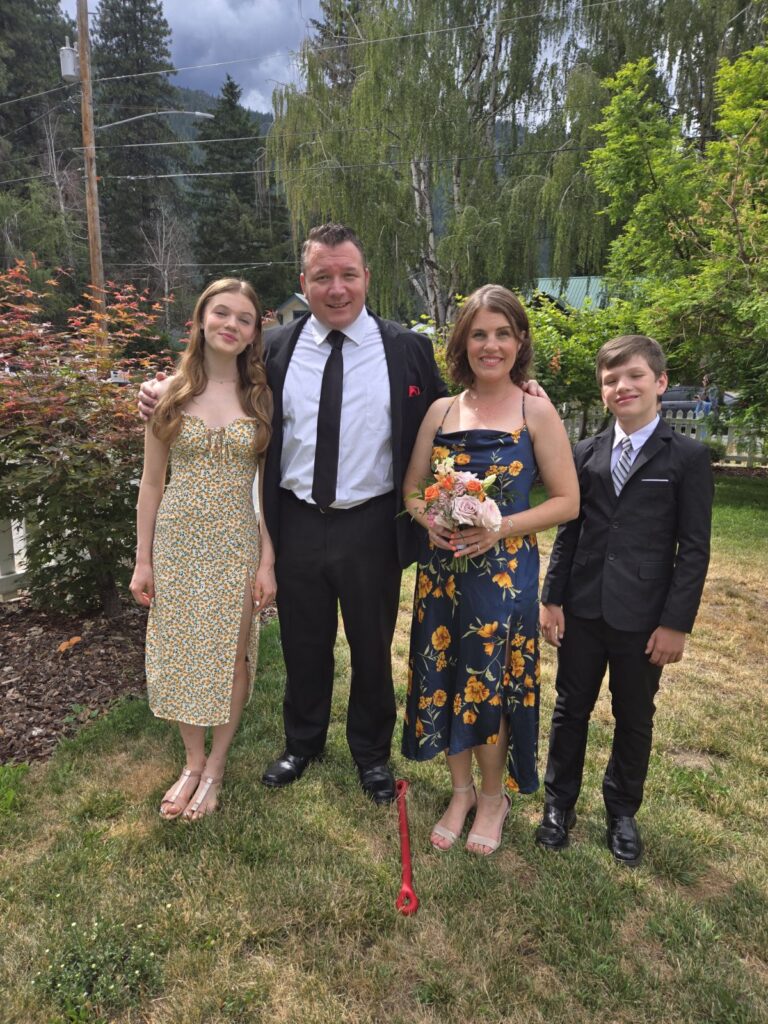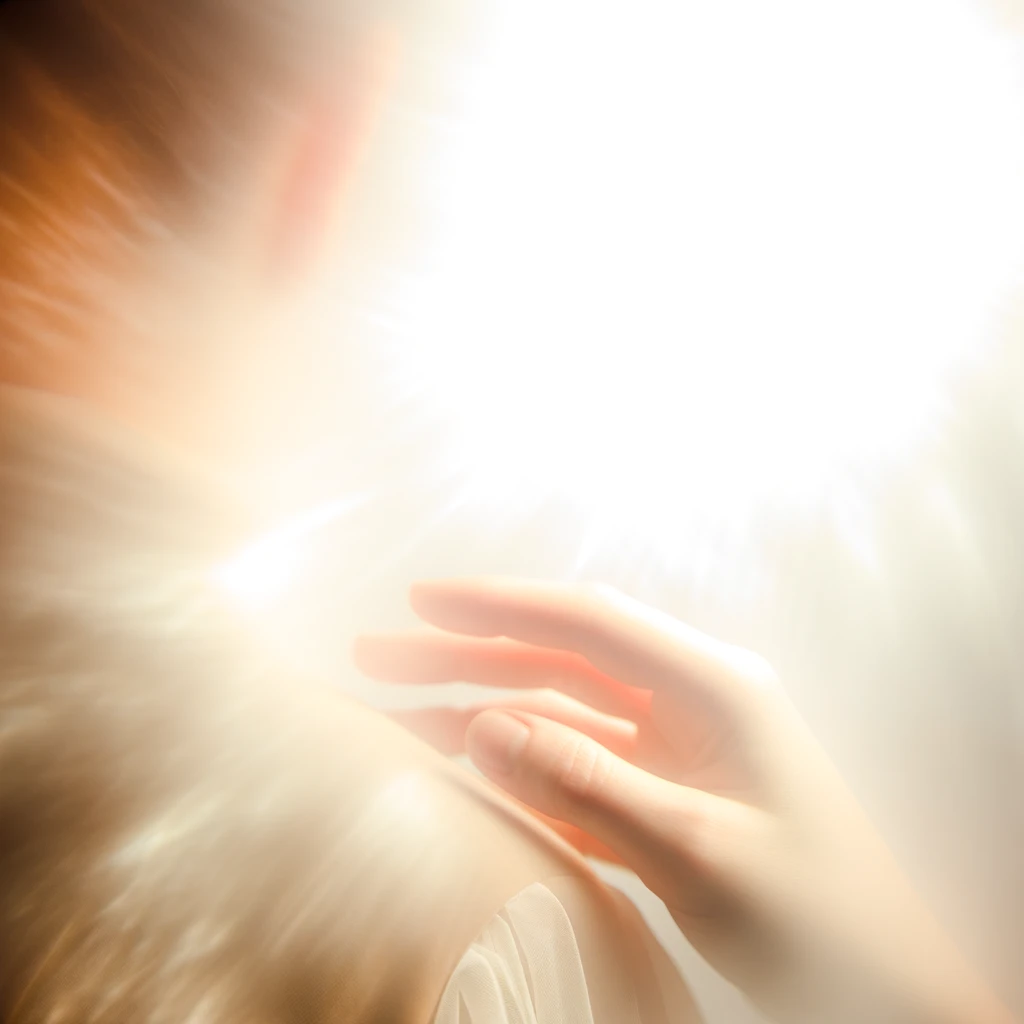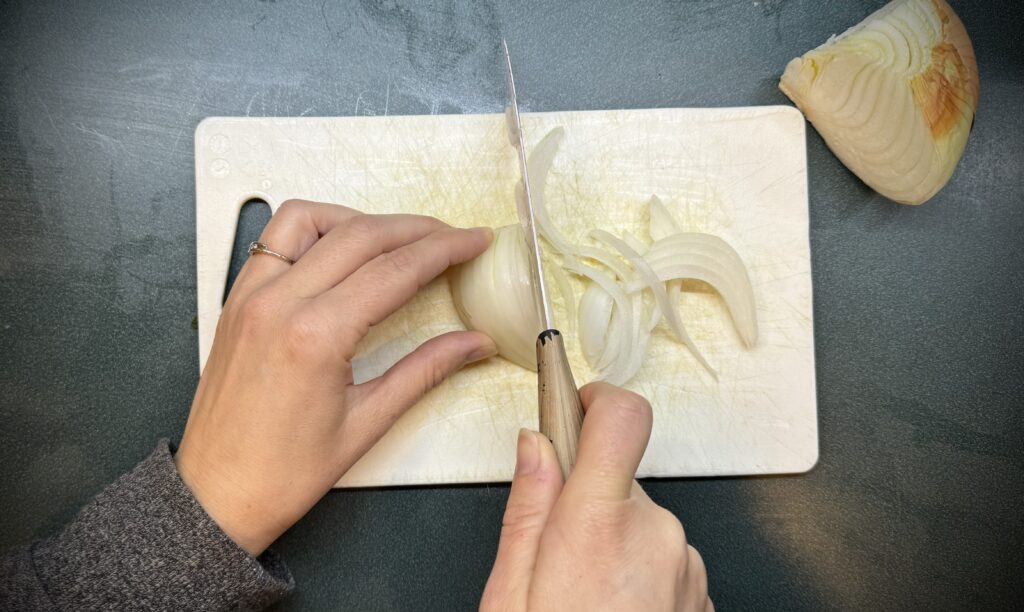As both a writer and an educator, I often find myself tasked with explaining things—breaking concepts down, putting them into words, making them make sense. But as I move through life with less and less vision, I’m becoming more aware of the things that don’t need explaining at all. In fact, there are entire realms of experience—felt, embodied, intuitive—that speak for themselves if we’re quiet enough to listen.
A while back, the word sight-splaining came to me. I genuinely thought I was coining the term. It turns out it was used during a 2019 AFB (American Foundation for the Blind) conference in the context of advocating for systemic change. So perhaps the phrase was already out in the ethers, floating around, and simply made its way to me.
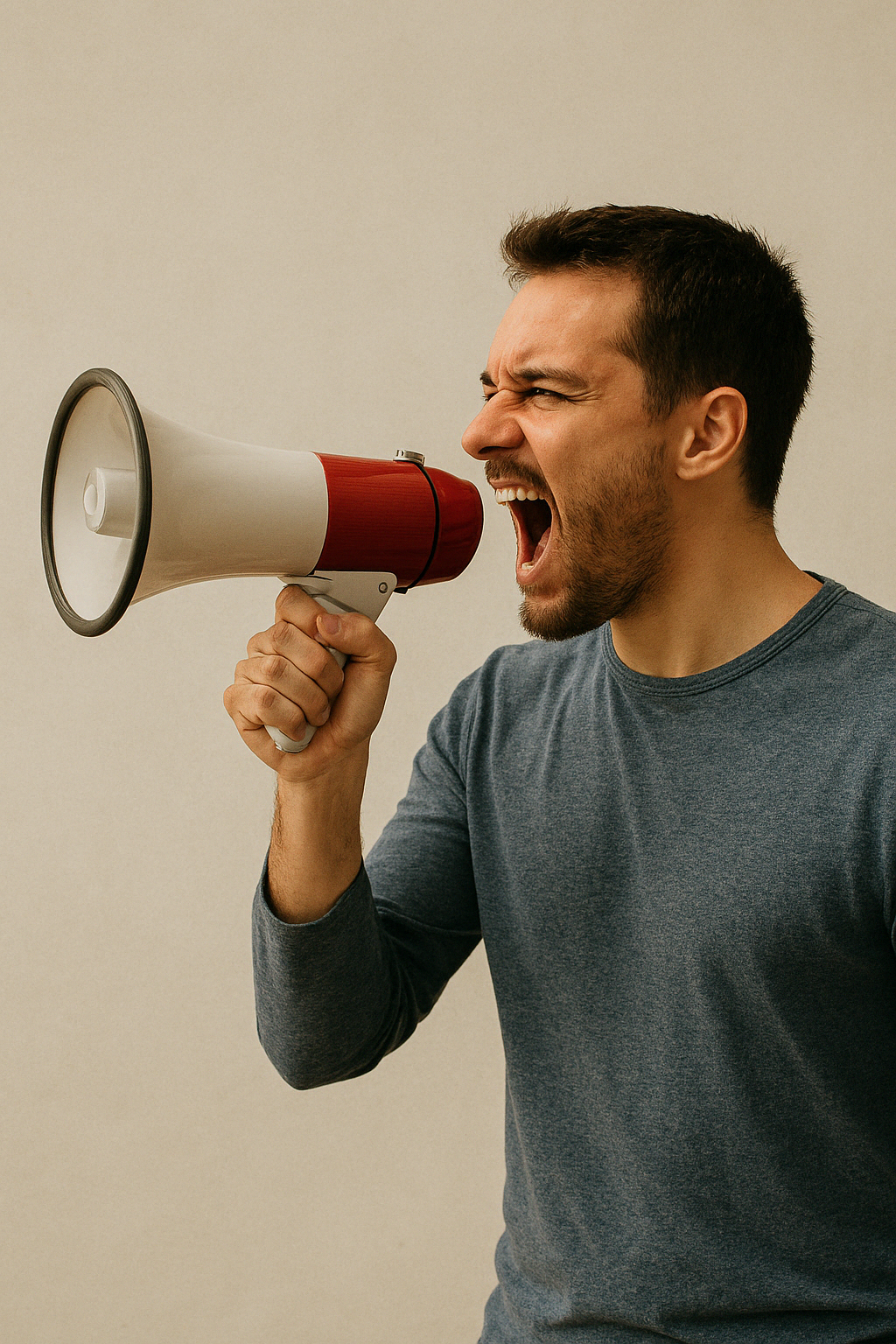 Sight-splaining happens when a sighted person describes something visual to a blind or visually impaired person—something that person could easily interpret through other senses or their own direct experience. It’s a bit like mansplaining—a term that describes when something is explained, usually by a man to a woman, in a way that feels unnecessary, condescending, or obvious. When I picture my husband mansplaining (which thankfully doesn’t happen often), I imagine him over-explaining something I already know. Sight-splaining, like mansplaining, is usually well-meaning. But it can still reflect a subtle assumption that vision is the most valid or complete way of experiencing the world.
Sight-splaining happens when a sighted person describes something visual to a blind or visually impaired person—something that person could easily interpret through other senses or their own direct experience. It’s a bit like mansplaining—a term that describes when something is explained, usually by a man to a woman, in a way that feels unnecessary, condescending, or obvious. When I picture my husband mansplaining (which thankfully doesn’t happen often), I imagine him over-explaining something I already know. Sight-splaining, like mansplaining, is usually well-meaning. But it can still reflect a subtle assumption that vision is the most valid or complete way of experiencing the world.
Let me offer a couple of examples.
During a yoga class, the instructor handed me a ball and then carefully described how it was squishy—softer than ones typically used in class. While I appreciated her intention, it struck me as a bit amusing. I was literally holding the ball. I could feel it.
Then, at a water aerobics class, a classmate turned to let me know that parts of the pool floor were smoother and more slippery. First, it was kind of funny—we were in the water. If I slipped, I’d still be in the pool. Second, I have feet. I could easily figure it out myself.
These moments highlight how we often prioritize sight as the primary way of understanding the world—sometimes forgetting the richness of other ways of knowing.
Recently, at a music gathering, I was struggling emotionally. I didn’t say anything—not in conversation or through body language. There was nothing visible to suggest I was having a hard time. And yet, as we stood singing together in a circle, the friend on my left gently squeezed my shoulder. The friend on my right reached out and held my hand. It was clear they both knew. Not through sight, but through presence. Through attunement. Through a deeper kind of seeing.
And here’s the thing: even as I write about it now, I can feel how trying to describe the moment somehow dims it. There’s something sacred that gets lost in translation when we try to pin soul-level knowing into words. That’s what I’d call soul-splaining—trying to explain an experience that was never meant to be explained, only felt. There’s a vague sense of what happened that a reader can grasp, but no retelling can replicate the depth of what I experienced in that moment.
Of course, it’s important not to confuse sight-splaining with genuinely helpful audio descriptions, which allow me to tune into moments I might otherwise miss. A family member recently described what was happening during a hibachi dinner—the chef tossing eggs in the air, flipping utensils, preparing the food with flair. It gave me clues to the shared moment we were all enjoying together. The same goes for the person I hired to audio-describe my daughter’s dance performance—something I wrote about in my Blind Dance Mom post. These kinds of descriptions are beautiful, thoughtful ways of including—not assuming.
So here’s a question I’d like to leave you with:
When you find yourself grasping for words to describe something, whether a felt experience or something you really want the other person to understand, take a brief pause to get curious about what’s behind the need to describe it. Is it something the other person, sighted or blind, may be able to intuit themselves?
Sometimes, in that space before we reach for words, we discover that the experience is already whole.
As Helen Keller once put it, “The best and most beautiful things in the world cannot be seen or even touched—they must be felt with the heart.”


